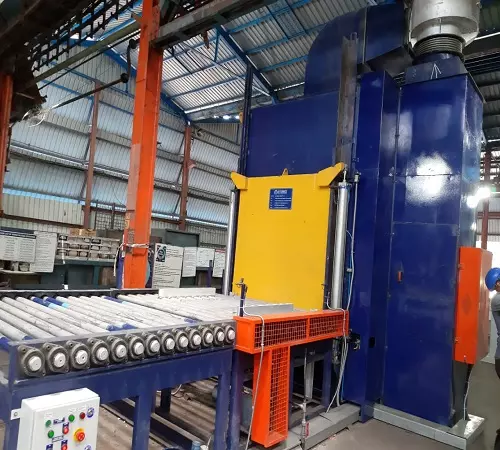Industrial ovens are the workhorses of many manufacturing processes. They are essential for tasks such as drying, curing, baking, and heat treating various materials. Proper maintenance of industrial ovens is critical to ensure they function efficiently, minimize downtime, and extend their lifespan. Neglecting maintenance can result in reduced performance, costly repairs, and safety hazards. Here are five essential tips and tricks to help you maintain your industrial oven effectively:
1. Regular Cleaning and Inspection
Regular cleaning is one of the most fundamental maintenance tasks for industrial ovens. The accumulation of dirt, residue, and contaminants can affect the oven’s performance and even pose safety risks. Here’s what to focus on:
a. Interior Cleaning: Remove any debris, residue, or build-up from the oven’s interior. Pay particular attention to the heating elements, fans, and vents. Use appropriate cleaning agents and ensure the oven is cooled down before cleaning.
b. Airflow Paths: Ensure that airflow paths, such as fans and ducts, are clear of obstructions. Restricted airflow can lead to uneven heating and longer processing times.
c. Inspect Seals and Gaskets: Check door seals and gaskets for signs of wear or damage. Damaged seals can lead to heat loss and reduced efficiency.
d. Ventilation: Ensure that the oven’s ventilation system is working correctly. Adequate ventilation is crucial to prevent the accumulation of fumes or gases that could be hazardous.
2. Lubrication and Moving Parts
Industrial ovens often have moving parts such as conveyors, fans, and dampers. Regularly lubricate these components to prevent friction, which can lead to premature wear and tear. Keep an eye out for loose or damaged parts and replace them promptly to avoid more extensive damage.
3. Calibration and Temperature Control
Temperature control is critical in industrial ovens, especially when precision is required. Regularly calibrate temperature sensors and controllers to ensure accuracy. This helps maintain product quality and prevent overheating or undercooking.
4. Electrical Components
Industrial ovens rely heavily on electrical components, including wiring, switches, and heating elements. Inspect these components regularly for signs of wear, loose connections, or corrosion. Faulty electrical components can pose significant safety risks and should be repaired or replaced promptly.
5. Preventive Maintenance Schedule
Implementing a preventive maintenance schedule is perhaps the most important tip for industrial oven maintenance. Create a comprehensive plan that includes regular inspections, cleaning, lubrication, and calibration. Assign responsibilities to trained personnel, and keep detailed records of all maintenance activities.
Key Elements of a Preventive Maintenance Schedule:
a. Frequency: Define how often each maintenance task should be performed. Some tasks, like cleaning, may be required daily or weekly, while others, such as calibration, may be done on a monthly or quarterly basis.
b. Personnel: Designate qualified personnel responsible for each task. Ensure they are trained in safety procedures and equipment operation.
c. Documentation: Maintain detailed records of all maintenance activities. This documentation can be invaluable for troubleshooting and ensuring compliance with industry standards.
d. Emergency Procedures: Develop clear procedures for handling unexpected breakdowns or malfunctions. This should include contact information for emergency repairs and spare parts suppliers.
In conclusion, a well-maintained industrial oven is essential for the success of many manufacturing processes. Regular cleaning, inspection, lubrication, calibration, and a structured preventive maintenance schedule are key to keeping your oven in peak condition. Neglecting maintenance can lead to costly downtime, decreased efficiency, and potential safety hazards. Investing time and resources in proper maintenance will pay off in the long run by ensuring reliable oven performance and extending its operational life.

